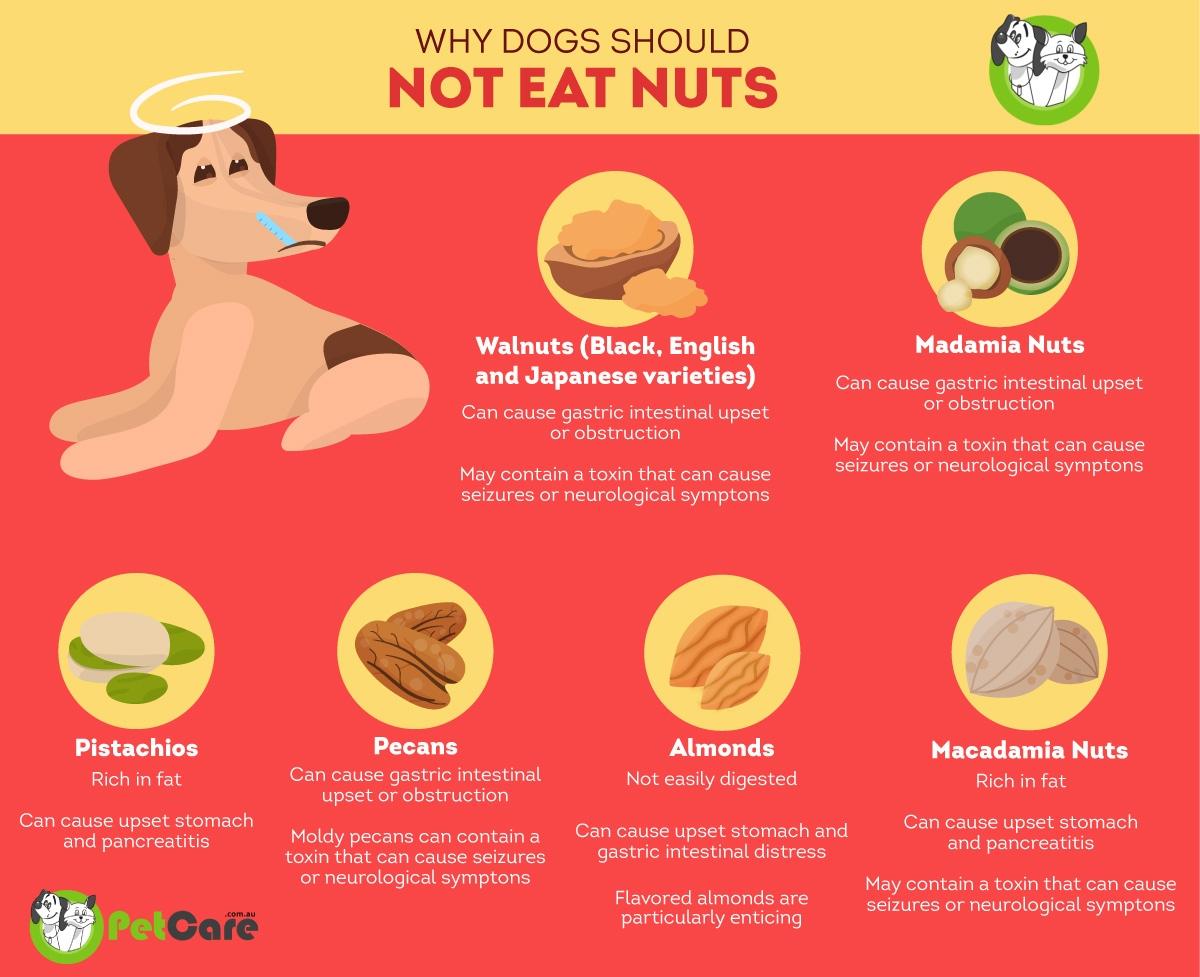When it comes to sharing snacks with our four-legged friends, it’s essential to know what’s safe and what’s not. As pet owners, we often find ourselves wondering if certain human foods can be safely enjoyed by our dogs. Nuts, with their rich flavors and nutritional benefits for humans, are a common source of curiosity. Can dogs eat nuts, and if so, which ones are safe? This guide aims to provide clarity on the topic, offering pet owners the knowledge they need to make informed decisions. With a warm and caring approach, we’ll explore the types of nuts that can be a healthy treat for your canine companion, as well as those that should be kept out of reach. Let’s dive into the world of nuts and uncover what you need to know to keep your furry friend happy and healthy.
Understanding Which Nuts Are Safe for Your Dog
When it comes to sharing snacks with your furry friend, it’s crucial to know which nuts are dog-friendly and which should be off-limits. While some nuts are safe in moderation, others can pose significant health risks. Here’s a quick guide to help you make informed decisions:
- Safe Nuts: Peanuts and cashews are generally safe for dogs when unsalted and given in small amounts. They can be a good source of protein and healthy fats, but always watch for any signs of allergies.
- Nuts to Avoid: Macadamia nuts and walnuts are a definite no-go. Macadamia nuts can cause weakness, vomiting, and tremors, while walnuts may lead to digestive issues or even more severe health problems due to mold toxins.
- Be Cautious: Almonds might not be toxic, but they can be hard to digest and might cause gastrointestinal distress. It’s best to steer clear to prevent any potential issues.
Always ensure that any nuts you do offer are plain and free from added salt, sugar, or chocolate coatings, which can be harmful to your pet. If you’re ever in doubt, consulting with your veterinarian can provide peace of mind and keep your dog safe and healthy.
Health Benefits and Risks of Nuts for Dogs
Nuts can be a tricky treat for our canine companions. While some nuts can offer health benefits like healthy fats, proteins, and vitamins, others pose significant risks due to their toxicity or potential to cause gastrointestinal distress. It’s crucial to distinguish between the two to ensure the safety and well-being of your furry friend.
- Safe Nuts:
– Peanuts: In moderation, unsalted and unseasoned peanuts can be a good source of protein and healthy fats.
– Cashews: Occasionally offering cashews can provide your dog with some essential nutrients. - Risky Nuts:
– Macadamia Nuts: Highly toxic to dogs, even in small amounts, leading to weakness, vomiting, and hyperthermia.
– Walnuts: Often contain mold that produces toxins, which can be harmful to dogs.
Always remember to introduce any new food, including nuts, gradually and observe your dog for any adverse reactions. Consult with your veterinarian to ensure that the snacks you choose are both safe and beneficial for your pup’s specific dietary needs.
How to Safely Introduce Nuts into Your Dogs Diet
When considering adding nuts to your furry friend’s diet, it’s crucial to proceed with caution and awareness. Start by introducing small quantities of safe nuts, such as peanuts, almonds, or cashews, ensuring they are unsalted and unseasoned. Monitor your dog’s reaction closely, as nuts can be a potential allergen or cause digestive issues. Always consult with your veterinarian before making any significant changes to your pet’s diet.
- Start Small: Begin with a tiny portion and observe your dog for any adverse reactions.
- Watch for Symptoms: Look out for signs like vomiting, diarrhea, or lethargy.
- Avoid Toxic Nuts: Steer clear of macadamia nuts and walnuts, as they can be harmful to dogs.
- Choking Hazard: Ensure nuts are chopped or crushed to prevent choking, especially for smaller breeds.
Introducing nuts should be done gradually and with care. Your dog’s health and safety are paramount, so always prioritize their well-being over dietary experimentation. Remember, moderation is key.
Recognizing Nut Allergies and Reactions in Dogs
Understanding how to identify a nut allergy in your canine companion is crucial for their health and well-being. Dogs, like humans, can have allergic reactions to certain foods, including nuts. Some common symptoms of a nut allergy in dogs include:
- Itchy skin or rashes
- Gastrointestinal distress, such as vomiting or diarrhea
- Swelling of the face, ears, or paws
- Excessive licking or scratching
- Difficulty breathing or coughing
If you observe any of these symptoms after your dog consumes nuts, it is important to contact your veterinarian promptly. They can provide guidance on treatment and help determine whether an allergy is present. Remember, not all nuts are toxic to dogs, but some, like macadamia nuts, are particularly harmful. It’s always best to err on the side of caution and consult a professional when introducing new foods to your dog’s diet.

